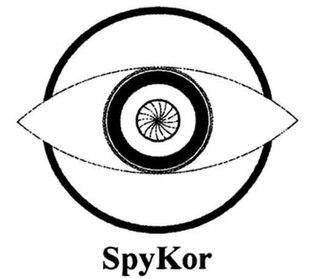Related Research Articles

A play-by-mail game is a game played through postal mail, email or other digital media. Correspondence chess and Go were among the first PBM games. Diplomacy has been played by mail since 1963, introducing a multi-player aspect to PBM games. Flying Buffalo Inc. pioneered the first commercially available PBM game in 1970. A small number of PBM companies followed in the 1970s, with an explosion of hundreds of startup PBM companies in the 1980s at the peak of PBM gaming popularity, many of them small hobby companies—more than 90 percent of which eventually folded. A number of independent PBM magazines also started in the 1980s, including The Nuts & Bolts of PBM, Gaming Universal, Paper Mayhem and Flagship. These magazines eventually went out of print, replaced in the 21st century by the online PBM journal Suspense and Decision.

Legends is a turn-based, role-playing game with a medieval setting. It is currently published in English by Harlequin Games. Jim Landes—owner of Midnight Games, the game's first publisher—began developing the game in 1984, eventually publishing it in December 1989 as a play-by-mail (PBM) game after over a year of playtesting. The initial game comprised a module and game system built on the publisher's existing game, Epic, and was run briefly as Swords of Pelarn before publication as Legends. The first of multiple game modules was Crown of Avalon, which allowed up to 200 players per game. Demand by 1991 was "incredible" according to Bruce R. Daniel in White Wolf. Games could be lengthy, initially between three and ten years of play, settling into an average of three years by 2002.

Heroic Fantasy is a computer-moderated, dungeon crawl play-by-mail game. It has been active since 1982 when it was published by Flying Buffalo. The initial edition involved nine dungeon levels. Flying Buffalo published subsequent editions due to challenging gameplay initially, eventually limiting the game to four dungeon levels with a fifth outdoors level where players can assemble an army and capture one or more castles. The game is open-ended; gameplay continues until players decide to stop.

Hyborian War is a play-by-mail game published by Reality Simulations, Inc. It takes place during the Hyborian Age in the world of Conan the Barbarian created by Robert E. Howard. The game has been continuously available for worldwide play since its inception in 1985 and has changed little in its overall format. It uses a computer program to adjudicate player orders. Although it relies on postal mail or email and has turnaround times which are relatively long for the digital age of video games, Hyborian War has remained active into the 21st century.
Midgard is an open-end, medieval fantasy play-by-mail game. It was published in 1984 by Time Space Simulations. Through 1996, the game passed through more than four different publishers, including Midgard USA. As of 2022, Talisman Games is the publisher. At initial publication, Midgard was computer moderated with partial human moderation.
World conquest was a play by mail wargame published for play in 1988 by Prime Time Simulations. It was an "operational level game of land, sea and air warfare".
Kings & Things was a computer moderated fantasy play-by-mail game published by Andon Games that was active in the 1980s and early 1990s. In the game, up to twenty players took the role of leader of a kingdom and recruited "things" or creatures to assist them in becoming the next emperor. Combat, diplomacy, and magic played significant roles in this fantasy role-playing game. Reception was generally positive, although there were comments about cumbersome turn results during the late 1980s. The game enjoyed peak reviews and ratings in the late 1980s and early 1990s, winning the Origins Award for best play-by-mail game in 1988.
CTF 2187 is a closed-end, computer-moderated, play-by-mail (PBM) game that was published by Advanced Gaming Enterprises in the 1980s. It involved teams of robots, of varying size and capabilities, battling on a hex-grid arena with the purpose of defeating the opposing team or their command post. Players assumed the role of a battle robot pilot. The game was tactically-focused, with combat action beginning on the first turn. Games lasted 5–10 turns, or about six months. Players began at the rank of cadet but could spend experience points earned from a completed game to increase in rank for future games, up to the rank of General.
The Final Campaign is a play-by-mail space-based wargame that was published by Blue Panther Enterprises beginning in 1989.

Victory! The Battle for Europe is a closed-end, military strategy, play-by-mail (PBM) wargame. The game was first published by Rolling Thunder Games, Inc. in 1991 after a period of initial growth in the PBM industry. The game centers on Europe while including parts of North Africa, the Middle East, the United States, and Canada. Forty players start each game with equal resources among countries, although geography causes differences between starting positions. Games last for about three years each. The game received positive reviews and rankings in the PBM magazine Paper Mayhem in the 1990s, including tying for second place in its Best PBM Game of 1995 list.

Quest is an open-end, fantasy, play-by-mail (PBM) role-playing game. Initially released in the United Kingdom in 1991, by Adventures by Mail, it later became available for play in the United States, Australia, and other countries in Europe. The game has a First and Second Age, initially comprising about twenty worlds of up to 1,000 parties controlled by players. After the year 2000, the worlds consolidated into four. The current publisher is KJC Games.
Sirius Command is a play-by-mail (PBM) game published by Inner Dimension Games.
Epic is a computer-moderated, fantasy play-by-mail (PBM) game.
The Next Empire is a closed-end, computer moderated, space-based play-by-mail (PBM) wargame.
Earthwood is a closed-ended, computer moderated, play-by-mail (PBM) fantasy wargame.
Empires for Rent is a closed-end, play-by-mail strategic wargame based in space. It was published by Blue Panther Enterprises.

SpyKor is a closed-end, computer-moderated, play-by-mail game. A game of low-medium complexity, it was published by Sudden Asylum, of Pflugerville, Texas and playable by mail or email. The game had a near-future setting. Eight players acted as the CEO of massive corporations vying for global domination through varying means, including war, espionage, and economics. The game received generally positive reviews in gamer magazines in the 1990s.
Belter is a closed-end, play-by-mail science fiction, space opera. 100 players led space corporations attempting to profit from minerals in the asteroid belt in 2050. Three players who achieved victory conditions won each game. The game received positive reviews in gaming magazines in the early 1990s.

Swords of the Gods is a closed-end fantasy play-by-mail wargame. The game was based on the trilogy Books of Swords by Fred Saberhagen. It was published by Galactic Simulations with playtesting starting in January 1986. Ares Games later published the game. 10–15 players per game vied for domination of a fantasy world with magic swords and deities which influenced gameplay. The game received positive reviews in gaming magazines in the late 1980s and early 1990s.
References
- ↑ Macagnone 1991. p. 13.
- 1 2 3 4 5 Daley 1993. p. 45.
- 1 2 3 4 5 Macagnone 1991. p. 14.
- 1 2 Daley 1993. p. 47.
- ↑ Editors 1991. p. 54–55.